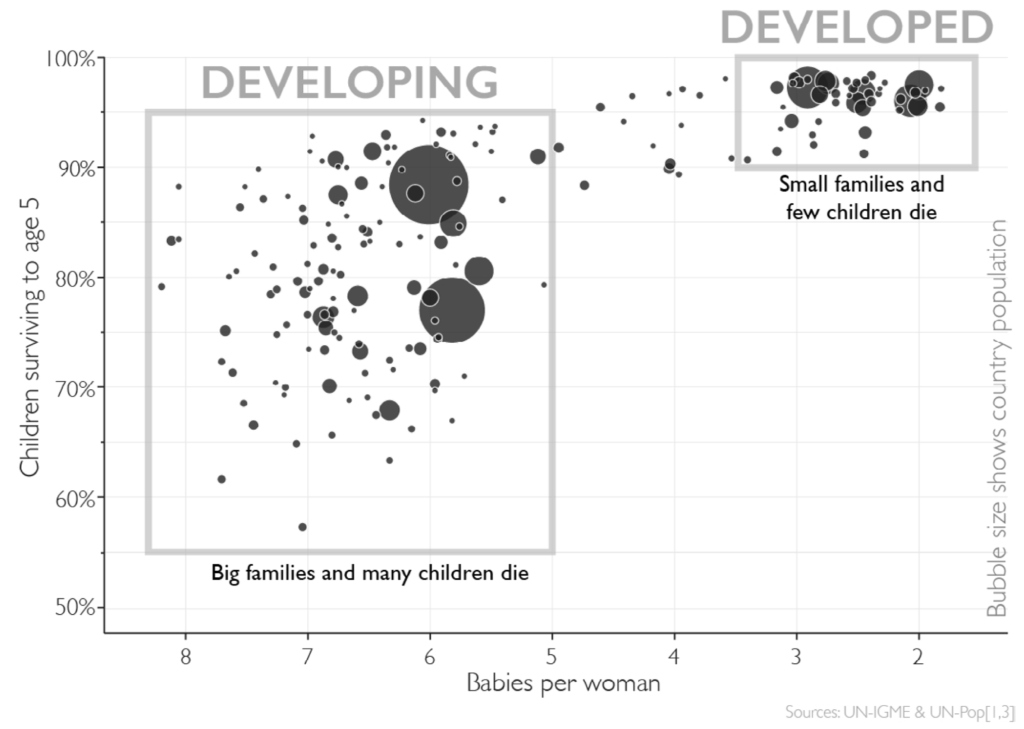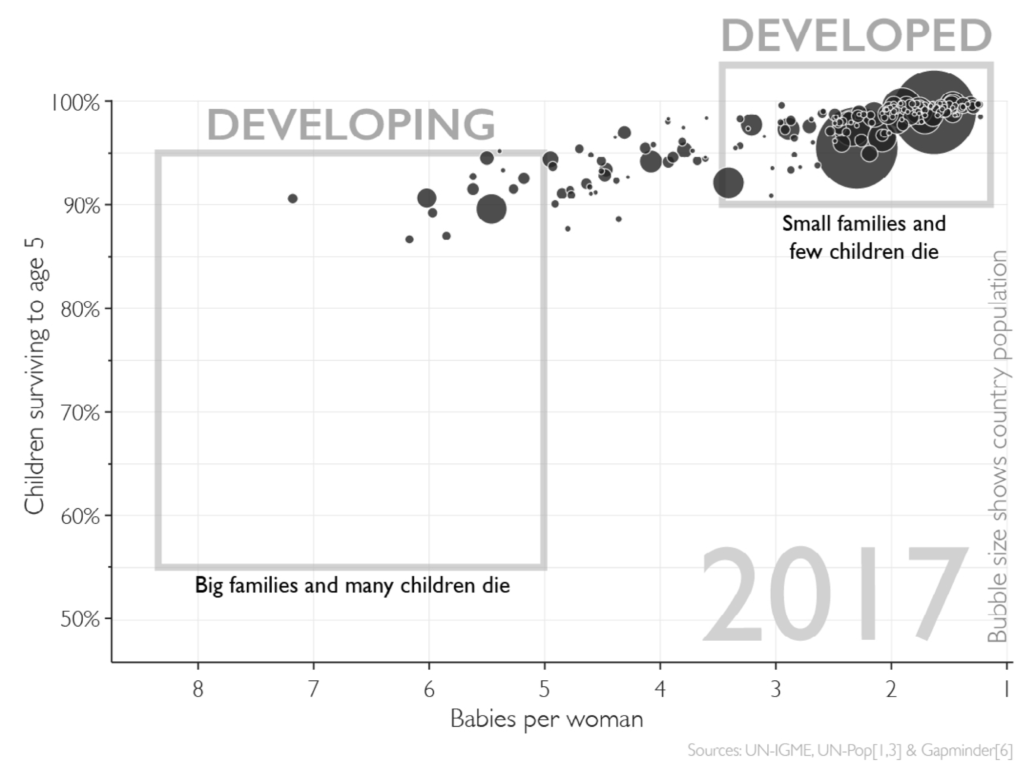News channels today are on permanent alert: “New crisis looming”, “The poor are getting poorer”, “US billionaires lost 30B in one day”, “Is the world going to end?” … the world seems to be on fire and going to end soon. Never ever have we been worse off than now … or haven’t we?
The media and negative news
The media are feeding on a particularity in human brains that is always looking for gossip and negative news. A very interesting effect can be observed. When presented with negative news and positive, most readers prefer to access and read more negatively loaded news. Interesting experiments have been performed by Lei Han et al from Shandong Normal University in China (ScienceDirect). When presenting people with the same neutral news, they observed that when the headline was phrased negatively, more negative cognition, lower social trust and hence negatively affected helping behavior. It seems, based on these and other experiments, that our drive to catch our readers’ attention with negative headlines has a detrimental effect on our society.
“Most readers prefer to access and read more negatively loaded news.”
Although the negativity bias of humans is known and well documented, most of us don’t realize that the more we either read negative news or even if just confronted with a negative headline, our social trust goes down and we are less likely to help. This is mainly our limbic brain at work. Counteracting this effect is not easy and does require energy, concentration, and activity of our prefrontal cortex.
Scientific Analysis
Articles and books have been written about this, however, one of the best I have come across is by Swedish physician Hans Rosling who published “Factfulness” to show that our world is much better off than we want to believe.
One of his most impressive examples can be found in the beginning of the book. Many people in what is generally termed “western world” or “developed world”, believe that the “developing world” is slowly slipping away into chaos and are longing to have the “good old times” back for them.

Rosling takes as an example the survival rate of infants (younger than 5 years) in countries worldwide. His assumption that the survival rate of infants is a good indicator of how a society is able to protect children against infections, violence and other factors that we associate with underdeveloped countries. When confronted with the diagram where birthrate and survival rate are correlated, we “westerners” immediately see that our perception is right. There is a clear distinction between the developing world and the developed world.
Living in the past or the present?
Or is it? The initial diagram shows numbers from 1965. However, when looking at the numbers from 2017, the picture looks dramatically different. Can you believe it? There has been a major shift into the segment that we previously labeled “developed world” (see diagram at the end of this article). What is going on here? Could it be that the world is really better off? But how about … ? Many questions and excuses might come up.
However, looking at the hard facts and numbers, there have been impressive improvements. Have they been continuous and on a year-by-year basis? Not always. However, we can observe that the global effect is very positive. No single country is worse off than it was in 1965. Does this mean that everything is o.k. and there is nothing to improve? No! There is still much do to for us and our children. Although critical thinking and criticizing is not always bad. It actually helps us to identify things that we can improve. What we have to do is to act. All societies where individuals are free to develop and improve their society and environment have disproportionately improved in different dimensions.
Finally
What does this mean for us and what do I want to be the takeaway from this article? You can take away the following five details that will have a positive impact on your life:
- Do not just trust statements, neither by the media, your friendly politician or your well-meaning friend on social media. ALWAYS ask and look for the numbers.
- If you have a strong feeling about some statement or news, assume that it’s your limbic brain talking. Take a moment and question your assumptions.
- When you read negative news there is usually some interest behind that news. Analyze and question it.
- The world is better than you think and than the news tell you. Use the scientific method, go for the numbers and always question your assumptions.
- Read more positive news and consciously avoid negative news. Even better, give yourself the gift of not listening to the news at all during 3-5 days a week.
If you want to experiment with this approach, start by leaving some positive news in the comment section of this article.
… and here comes the diagram from 2017.







